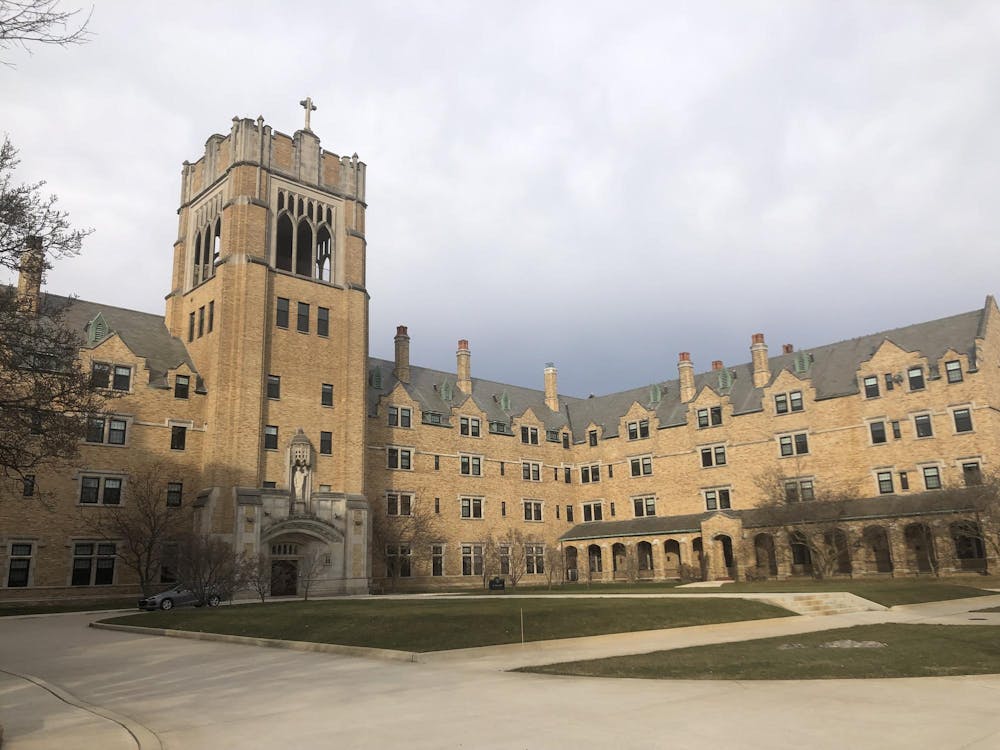In November, this newspaper reported that Saint Mary’s Board of Trustees approved a policy in June to consider transgender applicants for admission. One month later, the College reversed course and nixed the new admissions policy after backlash. Now, just over a week ago, a Wall Street Journal column about the College’s admissions saga trended on the Journal’s opinion page.
Debates over the content of the actual policy itself have been hashed out enough, so I won’t get into that. In fact, I don’t need to get into the actual policy. Saint Mary’s attempt to hide the admissions change is a worse reflection on the administration and board than just about any policy they could have come up with. By trying to kick the policy approval under the rug, the College embarrassed itself and disrespected its students and alumnae.
Time has passed, and College leadership does not seem to be regaining trust from the community. People are still reading and talking about the saga. Just a couple of weeks ago, women’s sports activist Riley Gaines spoke to tri-campus students about it. In early February, a group of alumnae formed a trust in response to the formerly updated policy.
At this point, it's clear. College President Katie Conboy and Board Chair Maureen Karantz Smith's handling of the policy change irreparably damaged Saint Mary's reputation. It's time for them to resign.
Currently, there are two pertinent questions to ask. First, does College leadership actually prioritize promoting the best interests of students? Second, is there anything those involved with approving the policy can do to rebuild their relationship with the community? After watching the past three months unfold, the answer to both of these questions is no.
The board and administration breached their sense of trust with their constituents and are paying the price. Getting national publicity two months after backtracking following backlash is not good.
It’s OK to make a decision that people don’t agree with. It is not OK to make a decision that people don’t agree with — especially a significant one — without being upfront and transparent about it.
Conboy said she announced the decision at a forum in August. But based on the reaction to the November social media posts and articles, students and alumnae clearly didn’t know about it. If you’re going to make a decision that changes the character and makeup of the college where students live, then students have a right to be made aware of that decision.
There appears to have been no campus-wide communication about the policy change until November — after social media uproar and The Observer article reporting on it. Different divisions of the College issue press releases and communications for all sorts of campus news and events. Yet, as of the writing of this column, none of Conboy and Smith’s communications regarding the policy were posted on the College’s website, where press releases and communications are stored.
The situation only got more precarious after Fort Wayne-South Bend Bishop Kevin Rhoades’ response. Rhoades, whose diocese is home to Saint Mary’s, said he was not made aware of the decision until Conboy’s email after The Observer article.
There is no good reason why the College would not have made a good-faith attempt to inform students and the bishop of the decision at the time of approval (or before). The policy directly affects the makeup and living conditions of the College and clearly was going to conflict with people’s views of Catholic teaching.
In the November email, Conboy billed the policy change as being “inclusive” of all women. However, the College was anything but inclusive when it came to adopting and announcing the policy.
In the email announcing the reversal, Conboy and Smith apologized because they “underestimated our community’s genuine desire to be engaged in the process of shaping a policy of such significance.” Conboy and Smith chose the word “underestimate.” How about “ignore?” Even after the process of shaping the policy was complete, they didn’t make a legitimate attempt to tell the community about it.
Whether or not you agree with the decision, Conboy and Smith committed two of the most egregious offenses an administration can: It breached its trust with its students and alumnae and embarrassed the greater institution.
A college’s leadership is supposed to make decisions in the best interest of the campus and institution. If leadership is unwilling to communicate important campus life decisions to students, it's a sign that they don't prioritize the best interests of its community members.
To President Conboy and Board Chair Smith, your work here is done.
You can contact Ryan at rpeters5@nd.edu.










